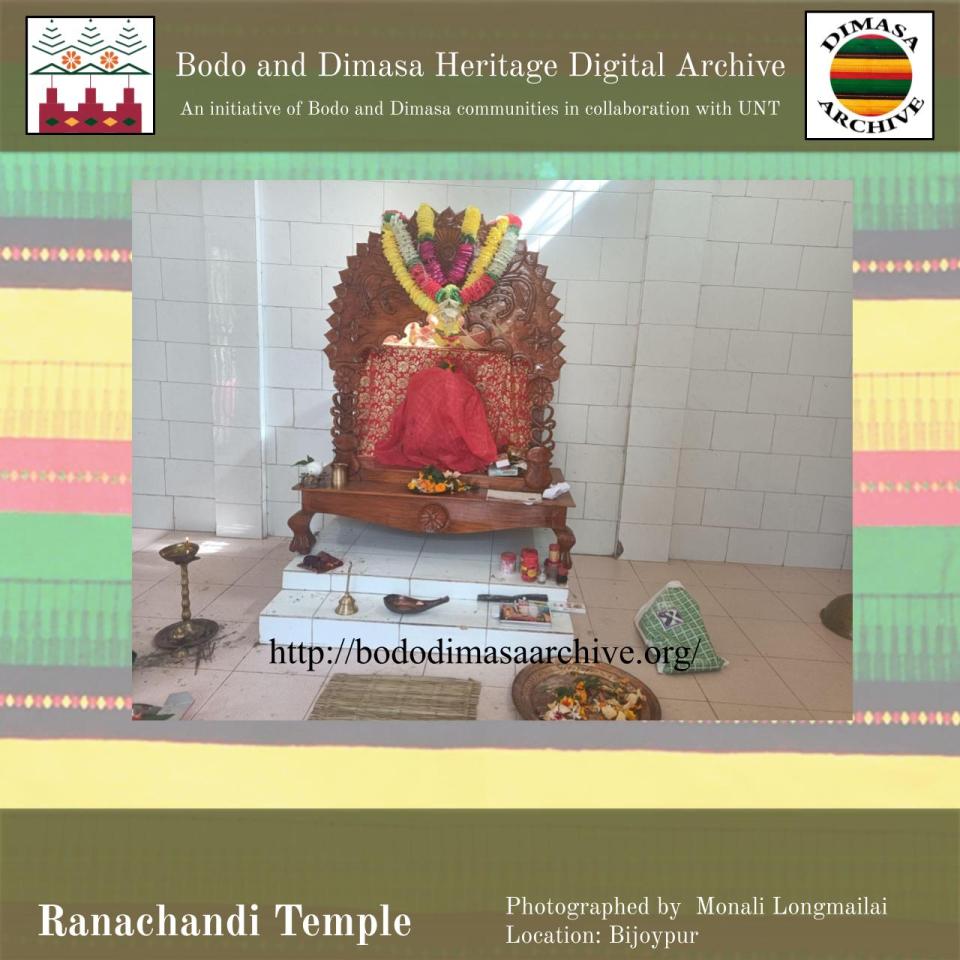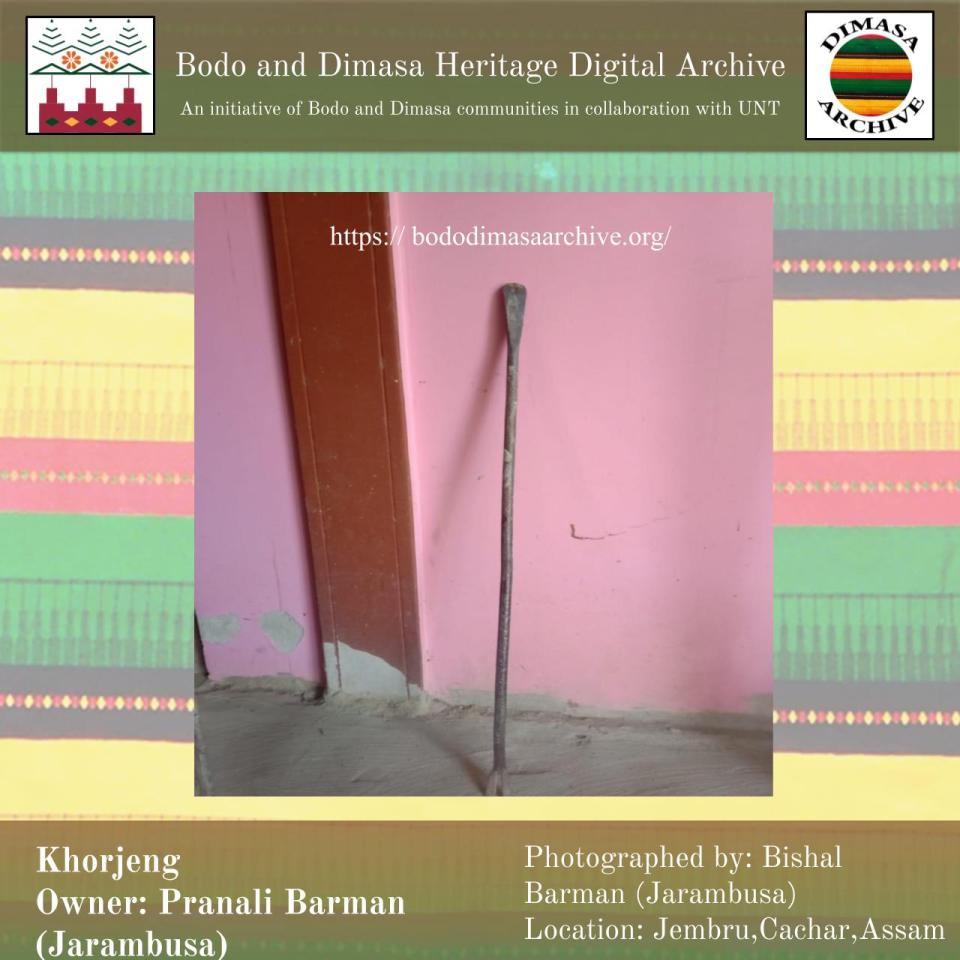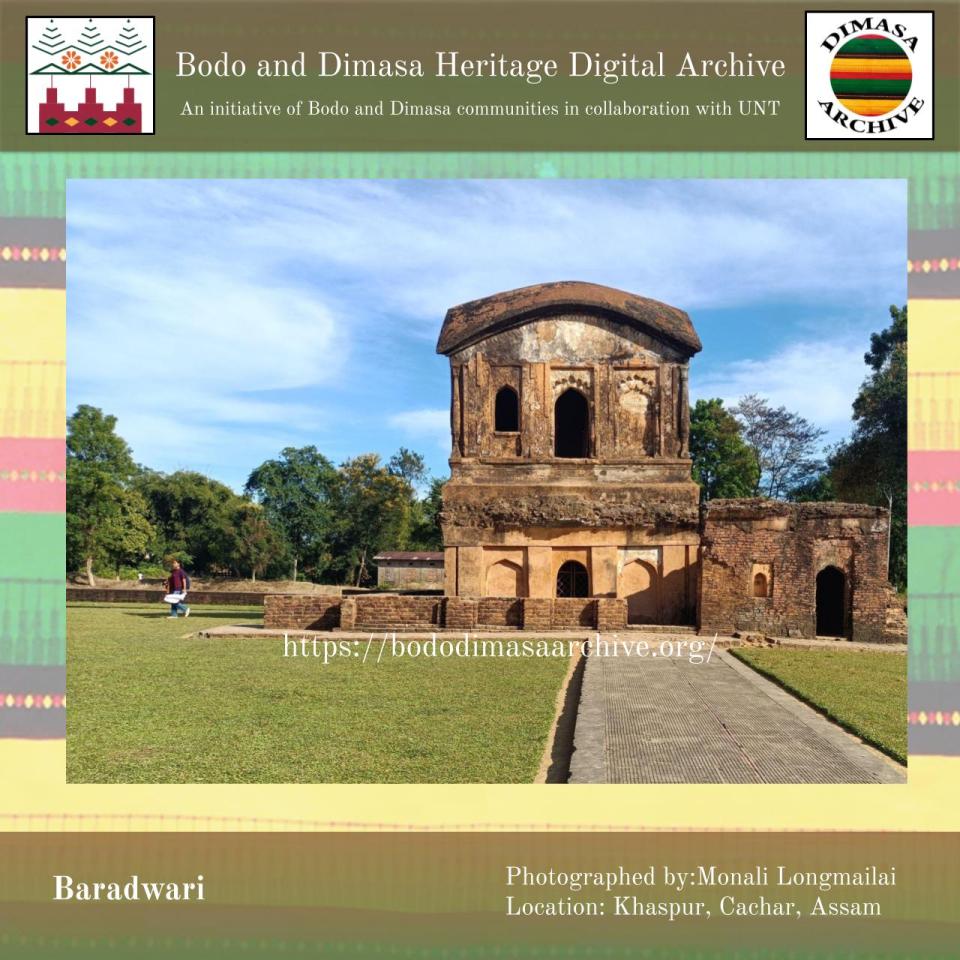Browse Digital Heritage
Search
Sort
Category
- (-) Remove History filter History
- Oral Traditions (18) Apply Oral Traditions filter
- People (17) Apply People filter
- Literature (8) Apply Literature filter
- Traditional Practices (5) Apply Traditional Practices filter
- Scholarly Works (2) Apply Scholarly Works filter
- Tools and Instruments (2) Apply Tools and Instruments filter
Digital Heritage
Community
DimasaCategory
History, LiteratureSummary
Ranachandi temple is related to Dimasa Kachari history, Digital Heritage
Community
DimasaCategory
People, History, Oral TraditionsSummary
This Dimasa historical monument is Known as “Barodwar” by the local people and it was built by the King Harishchandra Narayan Hasnu in the year 1771. Digital Heritage
Community
DimasaCategory
HistorySummary
The two storeyed palace, in the Campus of Royal palace at Khaspur Cachar. Only the main building stands today and the surrounding constructions had already collapsed.Digital Heritage
Community
DimasaCategory
People, History, Oral TraditionsSummary
This monument is known as “Snan mandir” by the locals, it was built by the Dimasa king Krishnachandra Narayan Hasnu in the year 1780. Digital Heritage
Community
DimasaCategory
History, Oral TraditionsSummary
Hawarma is famous for its oral history of the royal tanks from the reigns of Raja Tamradhvaj Hasnu and Raja Krishna Chandra Hasnu in the 17th and 18th centuries. Presently, these tanks like Baro Hal and Padda Dighir Par have been converted to fisheries.Digital Heritage
Community
DimasaCategory
People, History, Oral TraditionsSummary
The Gor Ail hillock is a historical significance to the Dimasa Kachari history, as it bears its name, Gor Ail (in Sylheti Bengali ‘Came home’), after the retreat of Dimasa soldiers in the hillock after a battle with Burmese soldiers in the 18th century.Digital Heritage
Community
DimasaCategory
People, History, Oral TraditionsSummary
This is an ancient temple of goddess Ranachandi which was built during the reign of Dimasa Kachari king and still standing in the good condition near the northern Singhadwar of the capital. Digital Heritage
Community
DimasaCategory
History, Oral Traditions, Scholarly WorksDigital Heritage
Community
DimasaCategory
People, History, Oral TraditionsSummary
This is a Dimasa Kali Mandir which is situated in Khaspur, Cachar (Assam). This temple was built by the Dimasa Kachari King Ramchandra Narayan Hasnu in the year 1743. Digital Heritage
Community
DimasaCategory
People, History, Oral TraditionsSummary
This is a temple of god Vishnu which was built during the reign of Dimasa Kachari king Krishnachandra Narayan Hasnu, it is situated in Kaspur Rajbari, Cachar (Assam). Digital Heritage
Community
DimasaCategory
People, History, Oral TraditionsSummary
This video is about the history of Longthaini Madai (Stone God) in Raidilung, which is narrated by Madhumangal Khersa.



